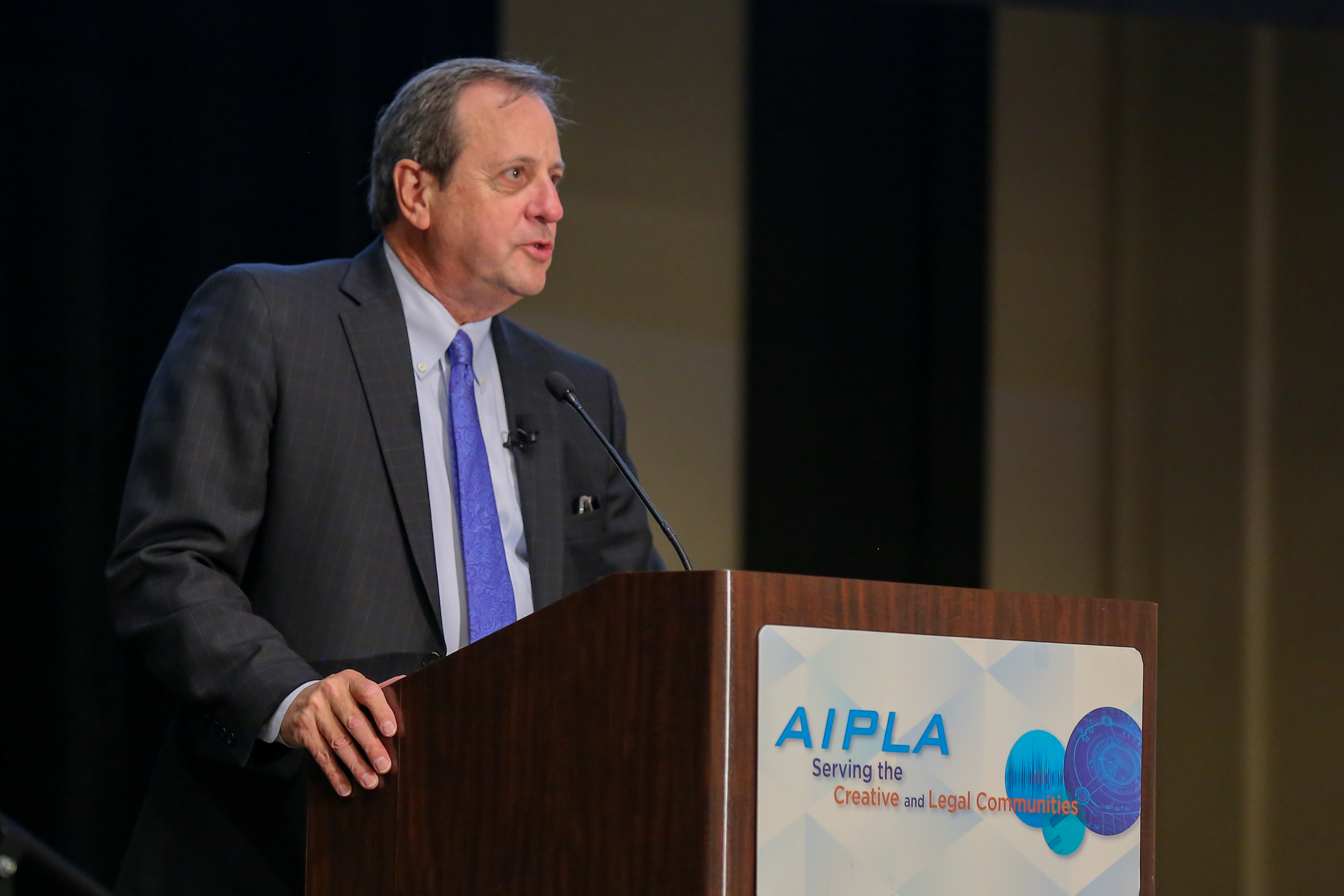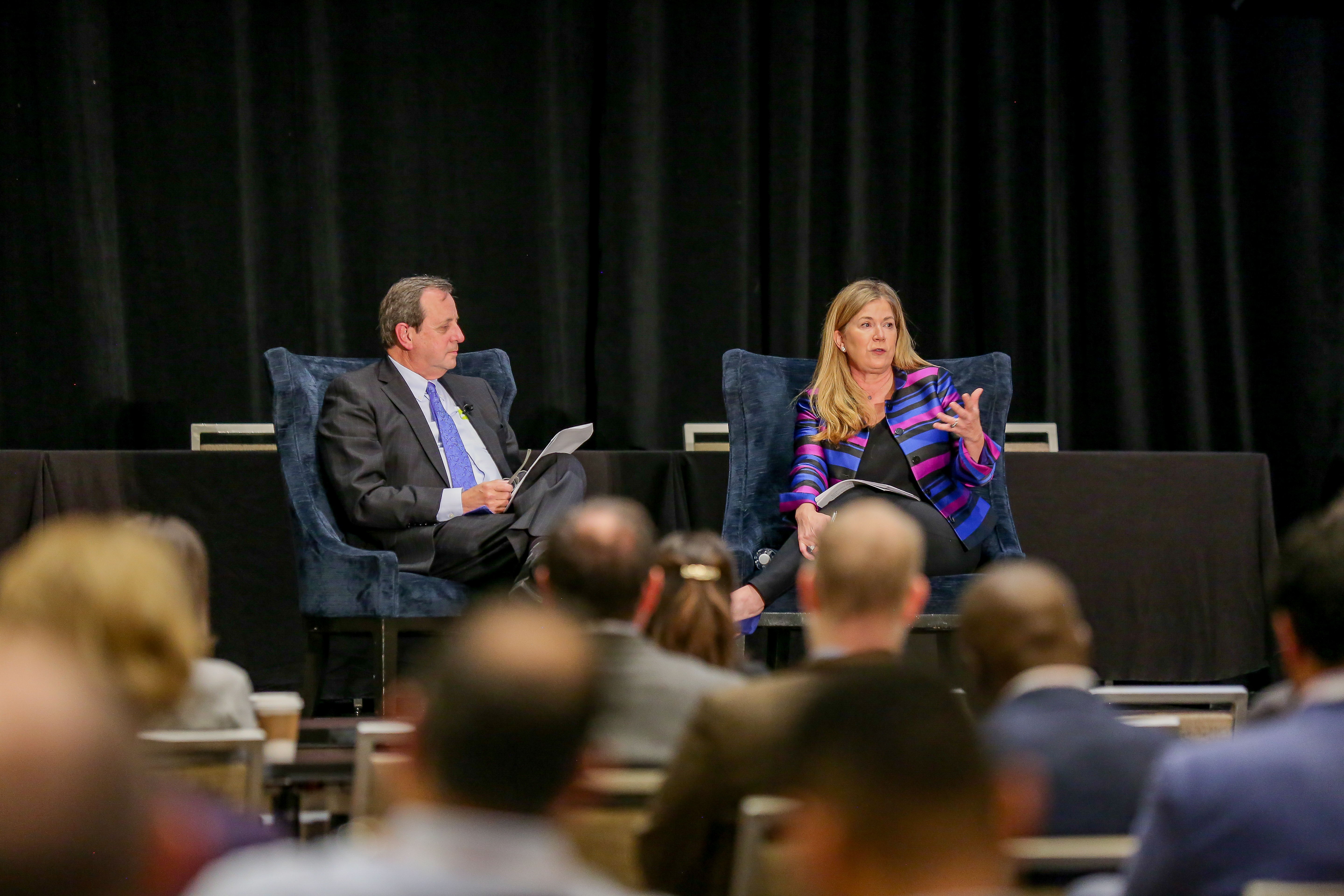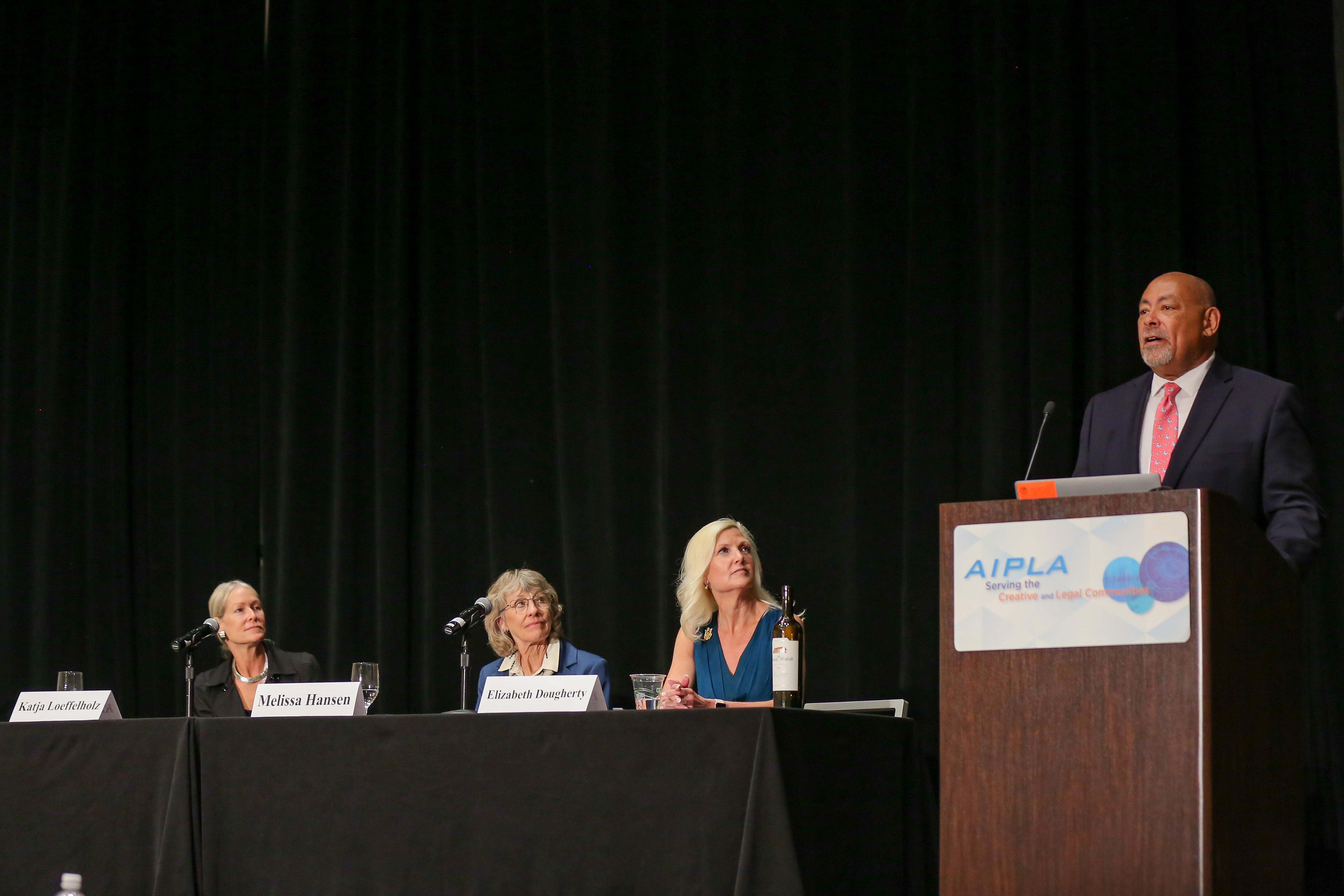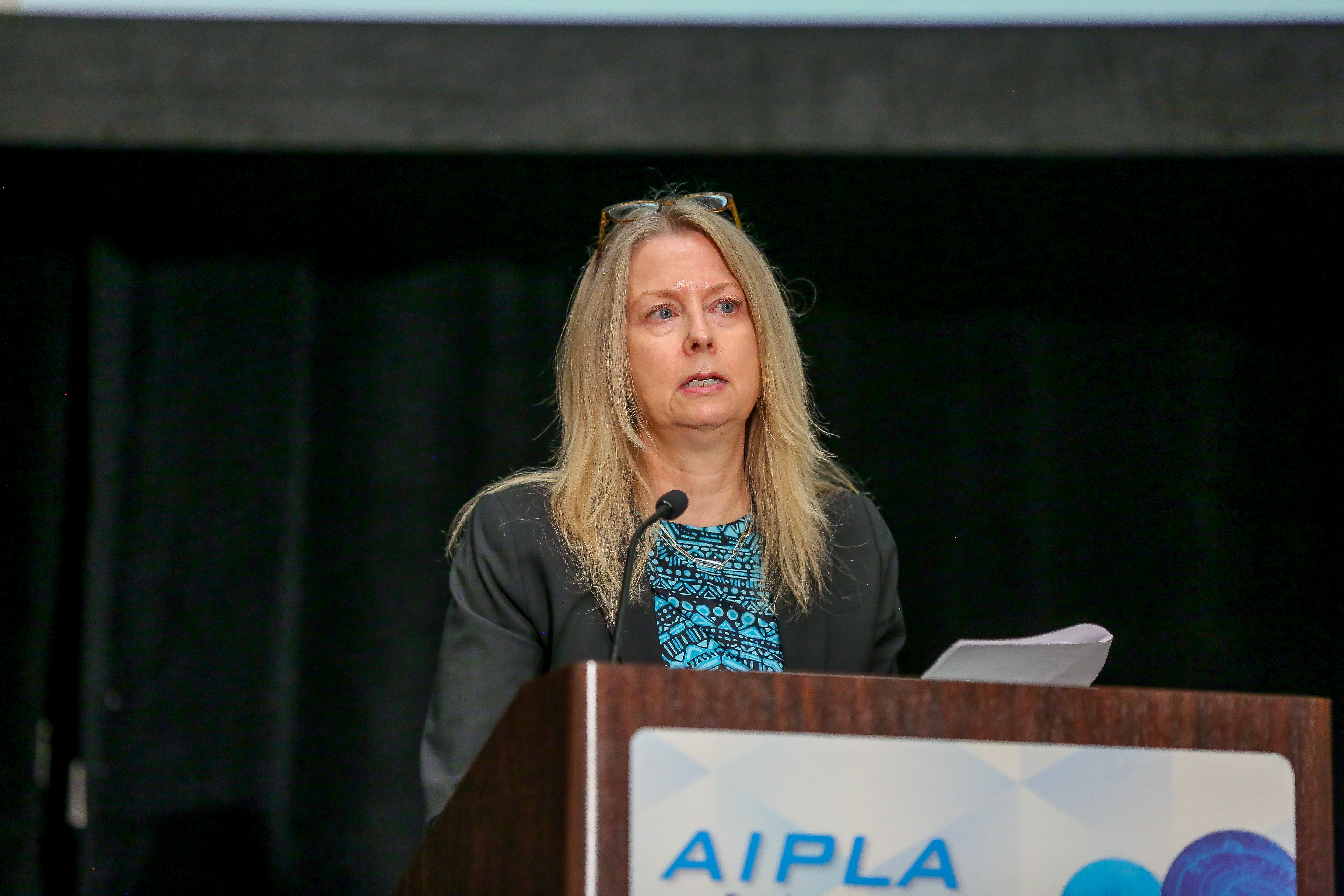2023 Spring Meeting
In This Section
Over 400 intellectual property practitioners joined AIPLA in Seattle for the 2023 Spring Meeting for three days of CLE, networking, and celebration. We were joined by USPTO Director Kathi Vidal, who addressed a wide range of issues from the recent ANPRM and harmonization, to DOCX, the patent Pro Bono Program, and more. Executive Vice President and General Counsel for the Seattle Kraken, Lance Lopes, and former Vice President and Chief Litigation Counsel at Apple, Noreen Krall, were our keynote luncheon speakers. Our top-notch CLE sessions covered hot topics in IP, including diversity in the wine industry, fair use in filmmaking, non-competition covenants in the age of remote and hybrid work, trademark and the use of AI tools, and more.
To read an article, please click on the down arrow to the right of the article title.
 President's Message - Brian H. Batzli – Spring 2023
President's Message - Brian H. Batzli – Spring 2023
Brian H. Batzli

 USPTO Director Kathi Vidal Addresses Diversity, Progress, and Innovation During the Opening Plenary
USPTO Director Kathi Vidal Addresses Diversity, Progress, and Innovation During the Opening Plenary

Under Secretary of Commerce for Intellectual Property and Director of the U.S. Patent and Trademark Office, Kathi Vidal, addressed AIPLA’s 2023 Spring Meeting in Seattle.
 AIPLA Toasts to the Future of Diversity in the Wine Industry
AIPLA Toasts to the Future of Diversity in the Wine Industry

The Spring Meeting’s Diversity Plenary showcased the Washington State wine industry and barriers to inclusion that exist for minority winemakers. The plenary was moderated by Elizabeth Dougherty, the Eastern Regional Outreach Director for the U.S. Patent and Trademark Office, and featured three experts in the industry, Melissa Hansen, who serves as the Research Program Director for Washington State Wine; Katja Loeffelholz, an IP Attorney at Dickenson Peatman & Fogarty in Napa, CA; and Phil Long, the Founder and Winemaker at Longevity Wines, and President of the Association of African American Vintners.
Hansen opened by painting a picture of the current state of the wine industry in Washington. She noted that 90% of wineries in the state are small, family-owned businesses, and that much of the focus at Washington State Wine is around research, be it sustainable pet control, climate change, water usage, or recycling.
Loeffelholz walked the group through the intellectual property ramifications and requirements for producing wine, explaining that trademarks, copyrights, trade dress, and design patents all play a role in bottling wine. A winemaker must seek trademark protection for the brand name, vineyard designation, tagline or slogan, and certification and service marks. Loeffelholz noted that wineries will often hire an independent contractor to design the label and bottle, and while the winery has a license to use the copyrighted design on the bottle, the intricacies of copyright law come into play if the winery wants to produce branded merchandise, such as a t-shirt or hat.
Long closed noting the importance of IP in the business, stating that, had he not done the “correct things with IP, I wouldn't be here today doing what I do.” Long then put his product and expertise on display with a wine tasting during the Diversity Committee’s business meeting.
 Ethics and Espresso: Ethics Training Focused on Practice Before the USPTO and PTAB
Ethics and Espresso: Ethics Training Focused on Practice Before the USPTO and PTAB

The takeaway from the ethics plenary- be a good, upstanding practitioner who abides by the morals and ethics of law and practice before the U.S. Patent and Trademark Office. Dahlia George from the Office of Enrollment and Discipline (OED) at the USPTO, and Judge Jacqueline Wright Bonilla of the PTAB outlined requirements for ethical practice before the USPTO and PTAB and the consequences for failure to do so.
George opened by explaining what constitutes practice of law before the PTAB and the mission of the OED, which is to not to go after practitioners for every misdemeanor or infraction, a point she emphasized throughout the hour. The goal of OED in George’s words is about “protecting the profession and the public,” because if you have a practitioner who isn't up to snuff, the public gets hurt.” On how an investigation gets opened, George explained that most complaints come to them externally, meaning the OED is not on a witch hunt for unethical practitioners. Most cases, she explained, come from opposing counsel, clients, or from within the subject's firm. Investigations begin with a Request for Information (RFI)- something George cautioned against ignoring because it allows for fact gathering from all sides. Many complaints either go away after examination or the subject will receive a confidential warning. Only serious misconduct results in going before a panel. George also noted the high standard of proof the OED must provide- clear and convincing, and cases face a one-year statute of limitations, per the AIA.
George also touched on the OED Diversion Pilot Program, noting that rehabilitation is always the first step for someone coming before the OED.
 SM23 Photos
SM23 Photos
 Upcoming Events
Upcoming Events
 Upcoming Webinars
Upcoming Webinars
 New Members
New Members
Upcoming Events
-
.png?sfvrsn=9aa26827_1) 2026 AIPLA Virtual Corporate Practice Institute
2026 AIPLA Virtual Corporate Practice Institute
January 13 to 20, 2026 | Up to 360 Minutes of CLE
The Corporate Practice Institute is not a bootcamp. This program provides in-depth insight for in-house corporate counsel and agents to learn about wide ranging legal issues affecting their practice from experienced practitioners. It is designed for experienced in-house attorneys and new in-house attorneys learning to manage new corporate environments and challenges not taught in law schools or private practice. The Institute also helps private practice attorneys, especially associates, prepare for potential in-house career moves. The program also provides valuable networking opportunities to connect with each other and learn from each other's experiences. This online, CLE-program spans two half-days, from Noon – 5:00 pm Eastern and includes 3 one-hour education sessions and a networking session each day. -
 AIPLA CLE Webinar: Regulation, Risk & Resilience: The Nexus Between Professional Liability, Duty of Competence & Practitioner Well-Being
AIPLA CLE Webinar: Regulation, Risk & Resilience: The Nexus Between Professional Liability, Duty of Competence & Practitioner Well-Being
February 10, 2026 12:30 PM to 2:00 PM | Eligible for up to 90 Mins CLE
Mental health issues and substance use disorders can affect any practitioner, in any setting, and at any time. Left untreated, they can destroy careers and lives. This program will discuss where the legal profession currently stands in relation to the substantial challenges presented by untreated mental health issues and substance use disorders and examine the nexus between ethical competence under the USPTO Rules of Professional Conduct and practitioner well-being. This program will educate attendees on how to recognize the signs of an impaired attorney, how to approach the colleague and begin a conversation, and discuss the possible disciplinary and professional liability implications of an impaired practitioner’s conduct. In addition, the speakers will present best practices/effective risk management strategies, preventative measures, and proposed policy and well-being initiatives, that practitioners in any practice setting may implement to protect clients, themselves, and other firm members as well as save careers. -
.png?sfvrsn=fb5905da_1) 2026 IP Transactions Bootcamp
2026 IP Transactions Bootcamp
February 12, 2026
This in-person bootcamp is designed to provide practical insights and strategies for professionals working in intellectual property transactions. The day features a comprehensive agenda including: Panels and CLE Sessions: Learn about Working with Tech Transfer Offices, Strategies for successful collaborations between nonprofits and industry, and Protecting and monetizing an AI asset. Drafting and Negotiating Tips: Get practical advice on drafting and negotiating strategic collaboration and license agreements. Hands-on Workshop: Participate in a Mock licensing negotiation to put your skills to the test. Networking: Conclude the day with a dedicated Networking reception. -
-(1).png?sfvrsn=7a1054_1) 2026 Trade Secret Summit
2026 Trade Secret Summit
March 26 to 27, 2026
The AIPLA Trade Secret Summit is the leading trade secret conference in the nation, with speakers from across the spectrum of private practitioners, in-house counsel, government, and academia, as well as fantastic networking opportunities. CLE credits will be available. -
2025 Women in IP Global Networking Event
April 16, 2026

